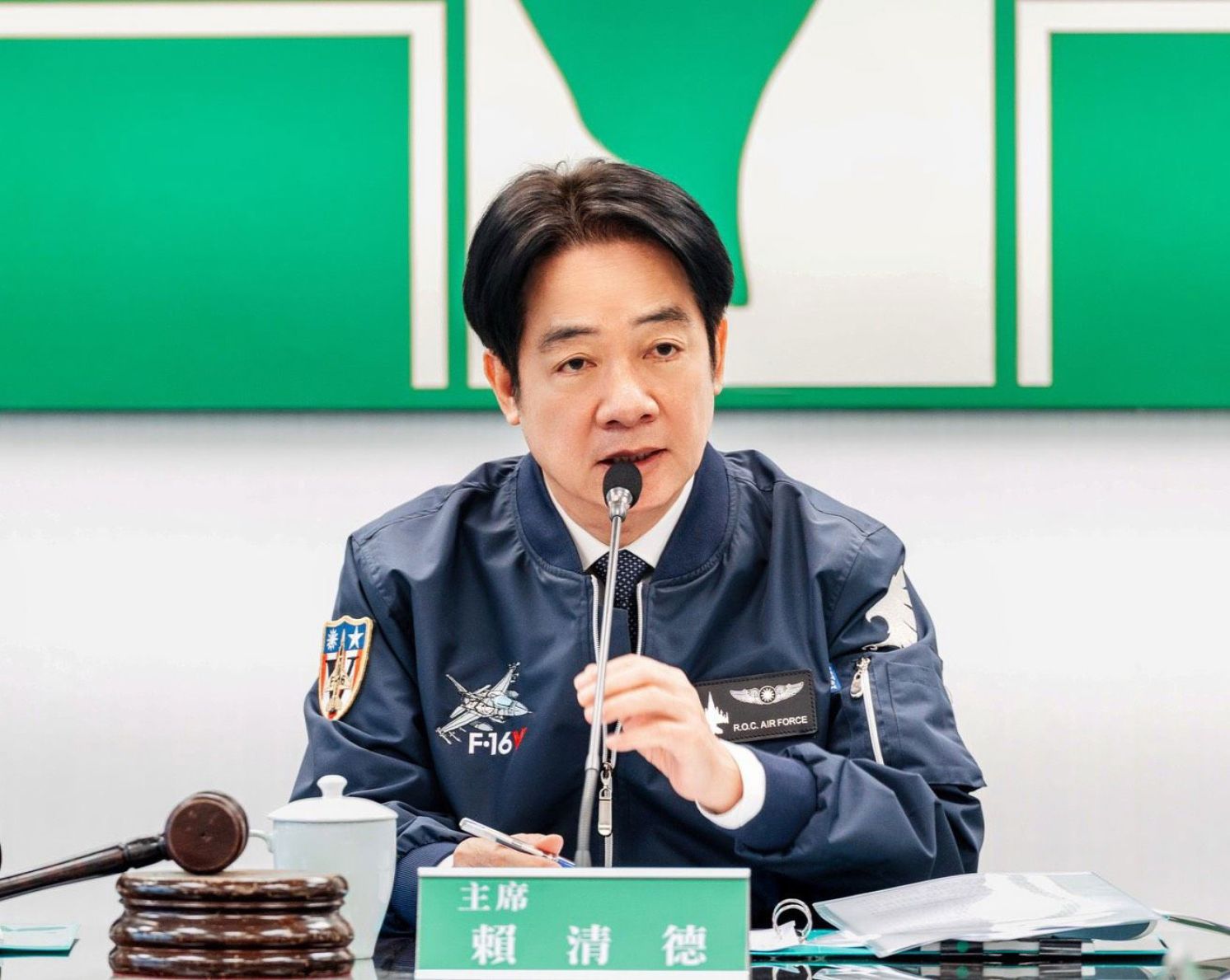
President Lai Heading Down the Path of Becoming a Dictator
The Storm Media, Opinion By Hsia Chen, April 25, 2025
On April 26, the opposition Kuomintang (KMT) and Taiwan People's Party (TPP) will hold a joint rally on Ketagalan Boulevard in Taipei under the banner of "fighting autocracy." In response, Premier Cho Jung-tai criticized KMT vice chairmen for visiting China and "shaking hands with an authoritarian regime." The Democratic Progressive Party (DPP) rebutted, "If this were truly a dictatorship, how could you march on the streets?"
Formally speaking, President Lai Ching-te is democratically elected, and the Legislative Yuan is controlled by the opposition—conditions that appear inconsistent with dictatorship. However, democracies are not immune to producing autocratic leaders. Moisés Naím, a former editor of Foreign Policy, indicated that many electoral democracies have transformed into authoritarian regimes fueled by populism, polarization, and post-truth politics—what he calls the "3Ps" of modern autocrats, citing President Donald Trump of the United States and former Prime Minister Boris Johnson of the United Kingdom as examples.
Even when leaders are elected, if their powers are unchecked, the judiciary loses independence, democratic procedures are ignored, dissent is suppressed, and the media is manipulated—these are all hallmarks of autocracy. By this measure, President Lai is walking a path paved by his predecessor, Tsai Ing-wen. Through laws aimed at transitional justice and party asset confiscation, the Tsai administration weakened opposition forces. Appointments across the judiciary, Central Election Commission (CEC), and National Communications Commission (NCC) were filled with loyalists. The forced shutdown of CtiTV News severely damaged press freedom and public trust.
Now, under President Lai, not only has this trend not been reversed, but it has deepened. In the face of an opposition-controlled Legislative Yuan, President Lai has resisted legislative reform, blocked legislation through constitutional challenges, and even launched large-scale recall campaigns to overturn recent electoral results—undermining the very principle of democratic elections.
The executive branch routinely dismisses legislative inquiries, citing "state secrets" when responding to critical issues. Key officials skip oversight hearings entirely or excuse themselves by claiming they are "busy with political matters." Agencies like the Ministry of Justice deflect responsibility with vague responses.
The most troubling issue is the political weaponization of the judiciary. Prosecutors have aggressively raided KMT offices and detained individuals involved in recall petitions—while showing far less scrutiny toward DPP-affiliated actors. Former Taipei Mayor Ko Wen-je was detained for eight months over a case with no clear financial trail, while selective leaks of hard drive content to media outlets were used to tarnish his reputation. Although the CEC occasionally refers to cases of forged petition signatures, judicial detention has historically been rare. Now, however, extraordinary measures are being taken—including dawn raids on witnesses—with authorities justifying such actions by citing local "lifestyle habits."
"If no one is willing to die defending freedom, then everyone will die under tyranny." Yale professor Timothy Snyder delivered a powerful warning about "tyranny in the age of democracy," pointing out that "a party that, through electoral success, gains momentum — driven by ideology, opportunism, or both — can fundamentally alter the political system from within. They distract the majority of the population, imprison part of the opposition, and thereby eliminate any remaining threats."
If not for the severe distortion of the judicial system, the Kuomintang (KMT) and Taiwan People's Party (TPP) might not have united so quickly to rally on Ketagalan Boulevard. The Democratic Progressive Party (DPP) criticized Taipei Mayor Chiang Wan-an for supporting Huang Lu Jin-ru outside the Taipei District Prosecutors Office, saying, "Don't forget, you are the mayor of Taipei, not just the mayor of the KMT." That same warning should be sent unchanged to President Lai Ching-te: "Don't forget, you are the president of Taiwan, not the president of the DPP."
When those in power disregard the legislature and manipulate the judiciary — and when constitutional checks on presidential power are weak — the line separating a leader from becoming a "dictator" grows dangerously thin.
From: https://www.storm.mg/article/5362812?mode=whole
〈Back to Taiwan Weekly Newsletter〉